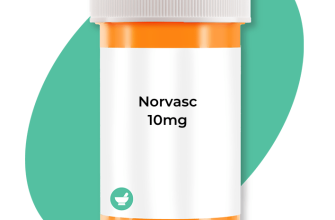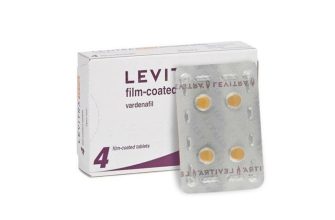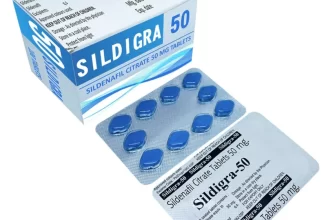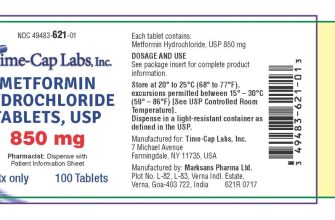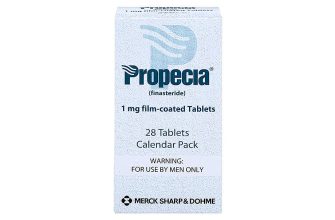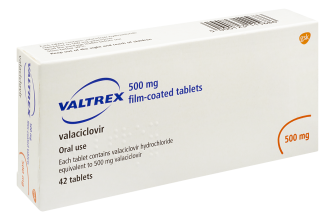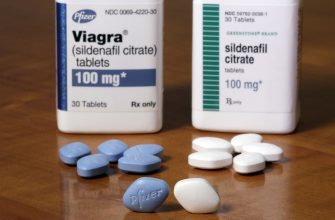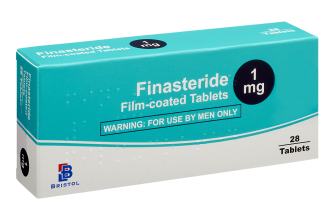If you’re looking to purchase veterinary prednisone without a prescription, it’s crucial to approach the process with care. Prednisone is commonly used to treat various inflammatory conditions in animals, and understanding its usage will help you make informed decisions.
Before you proceed, research reputable online pharmacies that offer veterinary medications. Verify their credentials and ensure they follow safety regulations. Many reputable sites will provide essential information about the medication, including dosage, administration, and potential side effects, which is critical for effective treatment.
Compare prices and check customer reviews to gauge the reliability of the service. Ensure that the pharmacy has a straightforward return policy in case the product does not meet your expectations. Staying informed about the proper use of prednisone for your pet will enhance its therapeutic benefits while minimizing risks.
When you’ve identified a trustworthy source, you can confidently place your order. Always keep communication open with your veterinarian regarding your pet’s treatment, especially when making decisions outside the traditional prescription route.
- Buy Veterinary Prednisone Online No Prescription
- Key Considerations
- Dosage and Administration
- Understanding Prednisone for Veterinary Use
- Legality of Purchasing Prednisone Without a Prescription
- Risks and Dangers of Buying Medication Online
- Identifying Reputable Online Veterinary Pharmacies
- Cost Comparison: Buying Prednisone Online vs. Local Vet
- Common Conditions Treated with Veterinary Prednisone
- Dosage Guidelines for Pets Taking Prednisone
- What to Do if You Experience Side Effects from Prednisone
- Alternatives to Prednisone for Veterinary Care
- Natural Supplements
- Alternative Therapies
Buy Veterinary Prednisone Online No Prescription
Obtaining veterinary prednisone online without a prescription is straightforward if you follow the right steps. Start by searching for reputable online pharmacies that specialize in veterinary medications. Ensure they require a veterinarian’s consultation or advice before purchasing. This practice maintains safety while allowing you to access necessary medications for your pet.
Key Considerations
Before making a purchase, verify the legitimacy of the online pharmacy. Look for customer reviews and check if they are licensed and comply with regulations. Choosing a pharmacy that offers secure payment methods and privacy protection ensures a smooth transaction.
Dosage and Administration
When buying prednisone, note the appropriate dosage based on your pet’s condition. Consult your veterinarian to understand the specific dosage, frequency, and potential side effects. Proper dosage is crucial to avoid complications.
| Pet Type | Dosage (mg) | Frequency |
|---|---|---|
| Dogs | 0.1 – 2 mg/kg | Once daily or as directed |
| Cats | 0.5 – 1 mg/kg | Once daily or as directed |
Always monitor your pet for any unusual reactions after administering the medication. Adhering to these guidelines will ensure that your pet receives the necessary care efficiently.
Understanding Prednisone for Veterinary Use
Veterinarians frequently prescribe prednisone for pets to manage various medical conditions. Familiarity with its benefits, side effects, and proper usage guidelines helps ensure the best outcomes for pets in need of treatment.
Prednisone acts as a corticosteroid that reduces inflammation and suppresses the immune response. This makes it effective in treating allergies, skin conditions, arthritis, and certain autoimmune disorders. Here’s what to keep in mind:
- Dosage: Always follow your veterinarian’s prescribed dosage. Typical doses vary depending on the condition but may range from 0.1 to 2 mg per kilogram of body weight.
- Administration: Prednisone can be given orally in tablet form. For best results, administer it with food to minimize gastrointestinal upset.
- Duration: Treatment duration depends on the condition. Long-term use can lead to complications, so regular veterinary check-ups are essential.
Be aware of potential side effects. Common issues include increased thirst, urination, and appetite. If your pet exhibits severe side effects such as vomiting, diarrhea, or lethargy, contact your veterinarian immediately.
Furthermore, avoid abrupt discontinuation of prednisone after long-term use. Gradual tapering is necessary to prevent withdrawal symptoms and adrenal insufficiency.
Always store prednisone in a cool, dry place, away from direct sunlight. Keep out of reach of pets and children.
If considering online purchase options, ensure the pharmacy is accredited and provides access to a licensed veterinarian for advice.
Regular monitoring and communication with your veterinarian help manage your pet’s condition effectively while using prednisone.
Legality of Purchasing Prednisone Without a Prescription
Purchasing prednisone without a prescription is illegal in many regions. Most countries, including the United States, strictly regulate the sale of prescription medications to ensure patient safety. Obtaining prednisone through unauthorized channels can lead to legal issues and health risks.
In the U.S., the Food and Drug Administration (FDA) classifies prednisone as a prescription medication. This classification exists to protect users from potential misuse and harmful side effects. Buying prednisone from unverified online sources poses a risk; you may receive counterfeit products, incorrect dosages, or medications that may not be suitable for your condition.
Some regions may allow purchasing certain medications without a prescription, but this often applies to over-the-counter drugs. It’s crucial to consult a veterinarian before administering any medication to pets, as they can assess the specific needs and health conditions of your animal.
Consider alternatives to purchasing medications without a prescription. You can visit a veterinarian for a proper diagnosis and prescription. Some veterinarians may also provide telemedicine services, allowing you to consult with them remotely. This ensures that you receive the correct medication safely and legally.
In summary, avoid buying prednisone without a prescription to ensure compliance with laws and safeguard your health and that of your pets. Always choose licensed veterinarians or pet pharmacies for your medication needs.
Risks and Dangers of Buying Medication Online
Verify the legitimacy of online pharmacies before making a purchase. Many sites may claim to provide medications without prescriptions, increasing the potential for unsafe products. Check for a pharmacy’s accreditation through organizations such as the National Association of Boards of Pharmacy (NABP). These designations indicate adherence to safety standards.
Beware of counterfeit medications that may be ineffective or harmful. Unregulated online sources may sell drugs that contain incorrect ingredients or dosages, posing serious health risks to pets. Always choose suppliers that provide clear information about their products and sourcing practices.
Watch for inadequate customer service. Reputable online pharmacies usually offer access to qualified pharmacists for consultation. If you cannot easily reach someone for guidance, reconsider your purchase. Lack of support during the buying process can indicate a questionable operation.
Observe the payment methods offered. Secure transactions through recognized payment processors signify a trustworthy vendor. Avoid sites that ask for wire transfers or cash payments, as these often indicate scams. Prioritize transactions that have SSL encryption to protect your financial data.
Review customer feedback and ratings. Researching experiences of other buyers can provide insight into an online pharmacy’s reliability. However, be cautious of reviews that seem overly positive; they may be fabricated. Seek out genuine customer feedback from multiple sources.
Consider potential legal consequences. Buying prescription medications without a consultation may violate regulations in certain regions. Familiarize yourself with local laws regarding online medication purchases to avoid possible legal issues.
Monitor for hidden allergens or side effects. Not all online pharmacies provide comprehensive information about the medications they sell. Ensure you read detailed product descriptions and consult with a veterinarian about any concerns related to your pet’s health.
Prioritize health by being vigilant about online medication purchases. The risks associated with buying veterinary medications online without a prescription can outweigh the convenience. Always put your pet’s safety first.
Identifying Reputable Online Veterinary Pharmacies
Check for the pharmacy’s credentials. Look for a pharmacy that is licensed and accredited by the appropriate veterinary regulatory body. Websites like the National Association of Boards of Pharmacy (NABP) offer verification services for online pharmacies.
Review customer feedback. Read testimonials and reviews from other pet owners. Positive reviews can indicate reliability and trustworthiness, while numerous complaints may raise red flags.
Verify prescription requirements. A legitimate online veterinary pharmacy will always require a valid prescription from a licensed veterinarian. If a pharmacy offers to sell medication without this, it may be operating illegally.
Examine the website’s professionalism. A trustworthy pharmacy will have a well-designed website that provides clear information about the products offered and detailed contact information. Avoid sites with vague or inadequate contact details.
Look for clear policies. Reputable pharmacies will have transparent policies on shipping, returns, and privacy. Carefully read through these policies to ensure they align with your expectations.
Check for easy access to veterinary consultations. Good pharmacies often provide options for pet owners to consult with licensed veterinarians before purchasing medications. This feature is a positive sign of commitment to safety and care.
Assess product pricing and availability. While lower prices can be tempting, significantly cheaper medications may indicate counterfeit products. Compare prices with other reputable pharmacies to gauge fair pricing.
Pay attention to secure payment options. Secure websites use encryption technology to protect your payment information. Look for “https://” in the URL and trusted payment methods to ensure your financial data is safeguarded.
Cost Comparison: Buying Prednisone Online vs. Local Vet
Purchasing prednisone online typically offers a lower cost compared to obtaining it from a local veterinarian. Online pharmacies often provide competitive pricing due to reduced overhead costs and special discounts. For instance, a standard prescription of prednisone might range from $0.50 to $2.00 per tablet when ordered online, whereas local vet clinics may charge between $2.50 and $5.00 per tablet, including consultation fees.
Considering shipping fees, many online pharmacies offer free shipping on orders above a specified amount, which can offset additional costs. It’s advisable to compare several online sources to find the best deal that meets your needs.
Keep in mind that local veterinarians provide valuable services that online purchases lack, such as direct consultations and the ability to address any side effects your pet may experience. Weigh the cost of medication against the benefits of professional advice when making your decision.
For those who feel comfortable managing their pet’s medication without a vet visit, online purchasing can be a smart financial choice. For occasional buyers, checking both online prices and local options ensures you get the best rate. Always prioritize the health and well-being of your pet while considering these purchasing options.
Common Conditions Treated with Veterinary Prednisone
Veterinary prednisone effectively addresses several health issues in animals. Here’s a detailed look at the conditions for which veterinarians commonly prescribe this medication:
- Allergic Reactions: Prednisone helps reduce inflammation and pruritus caused by allergies in pets. It provides relief from symptoms such as itching, redness, and swelling.
- Autoimmune Disorders: Conditions like autoimmune hemolytic anemia and lupus benefit from prednisone’s immunosuppressive properties, allowing the immune system to function more normally.
- Inflammatory Conditions: Prednisone is effective in treating conditions like chronic arthritis, which involve significant inflammation. It alleviates pain and improves mobility.
- Respiratory Issues: For pets suffering from conditions like asthma or bronchitis, prednisone reduces airway inflammation, ensuring easier breathing.
- Certain Cancers: Some cancer treatments may include prednisone to manage symptoms and side effects, particularly for lymphomas, aiding in the overall treatment plan.
- Skin Disorders: Conditions such as eczema and dermatitis can improve with prednisone, as it minimizes inflammation and speeds up recovery.
- Gastrointestinal Diseases: Inflammatory bowel disease can be treated using prednisone, which decreases inflammation in the GI tract, aiding digestion and nutrient absorption.
Always consult a veterinarian before administering prednisone, as they can tailor treatment to your pet’s specific needs and health status.
Dosage Guidelines for Pets Taking Prednisone
The typical starting dose of prednisone for dogs is 0.1 to 0.3 mg per pound of body weight daily. For cats, the usual range is about 0.1 to 0.2 mg per pound daily. Adjustments depend on the condition being treated and individual response. Monitor your pet’s reaction closely.
For acute conditions, veterinarians often use a higher initial dose, then taper down based on improvement. A common tapering schedule might involve reducing the dosage by 25% every few days until the lowest effective dose is reached.
Long-term use may require gradual tapering rather than abrupt cessation to prevent withdrawal symptoms. Always consult your veterinarian before making any changes to your pet’s dosage.
Be aware of symptoms of overdose, including excessive thirst, increased urination, vomiting, or lethargy. Report these to your veterinarian without delay.
Regular check-ups are crucial for pets on prednisone. Your veterinarian may recommend routine blood tests to monitor liver function and other potential side effects.
Consistency in administration enhances effectiveness. Give prednisone with food to reduce stomach irritation, and aim to administer it at the same time each day for best results. Maintaining a detailed medication schedule can help track doses accurately.
What to Do if You Experience Side Effects from Prednisone
If you notice side effects while taking prednisone, contact your veterinarian immediately. They can assess your situation and make adjustments to the treatment if necessary.
Keep a detailed record of any symptoms you experience, including their severity and frequency. This information will help your veterinarian understand the impact of the medication and guide their recommendations.
Avoid abruptly stopping prednisone without your veterinarian’s advice. Sudden discontinuation can lead to withdrawal symptoms. Discuss any dosage concerns or the possibility of tapering off the medication with your veterinarian.
Ensure proper hydration and nutrition. Some side effects, like increased appetite or weight gain, may require dietary adjustments. Consult with a vet for a nutrition plan that suits your pet’s new needs.
If gastrointestinal issues arise, such as vomiting or diarrhea, providing a bland diet may help. Rice, boiled chicken, or specific veterinary-recommended diets might alleviate these symptoms. Always consult your veterinarian before making any diet changes.
Monitor for signs of infection or other serious reactions, such as excessive thirst, urination, or unusual behavior. Report these symptoms to your veterinarian as they may require immediate intervention.
Consider supplemental medications to counteract specific side effects. Your veterinarian may recommend anti-nausea or gastrointestinal protectants if needed.
Regular follow-ups with your veterinarian will help track your pet’s health and any reactions to the medication. Ensure you attend all scheduled appointments and blood tests as recommended to monitor for potential complications.
Educate yourself about common prednisone side effects. Understanding what to expect can help you differentiate between manageable symptoms and those that require medical attention.
Alternatives to Prednisone for Veterinary Care
Consider non-steroidal anti-inflammatory drugs (NSAIDs) as a primary alternative to prednisone. NSAIDs, such as carprofen and meloxicam, effectively reduce inflammation and pain in animals with arthritis or post-surgical recovery. Always consult your veterinarian to determine the appropriate dose and ensure safety for your pet’s specific health conditions.
Natural Supplements
Explore natural supplements like omega-3 fatty acids, glucosamine, and turmeric. Omega-3s can help reduce inflammation, while glucosamine supports joint health. Turmeric contains curcumin, known for its anti-inflammatory properties. Incorporating these into your pet’s diet may enhance their overall well-being.
Alternative Therapies
Acupuncture and physical therapy offer non-pharmaceutical options for pain management. These therapies stimulate healing and can improve mobility. Seek professional practitioners experienced with animals to experience the best outcomes. Discuss these options with your veterinarian to tailor a suitable plan for your pet’s needs.


